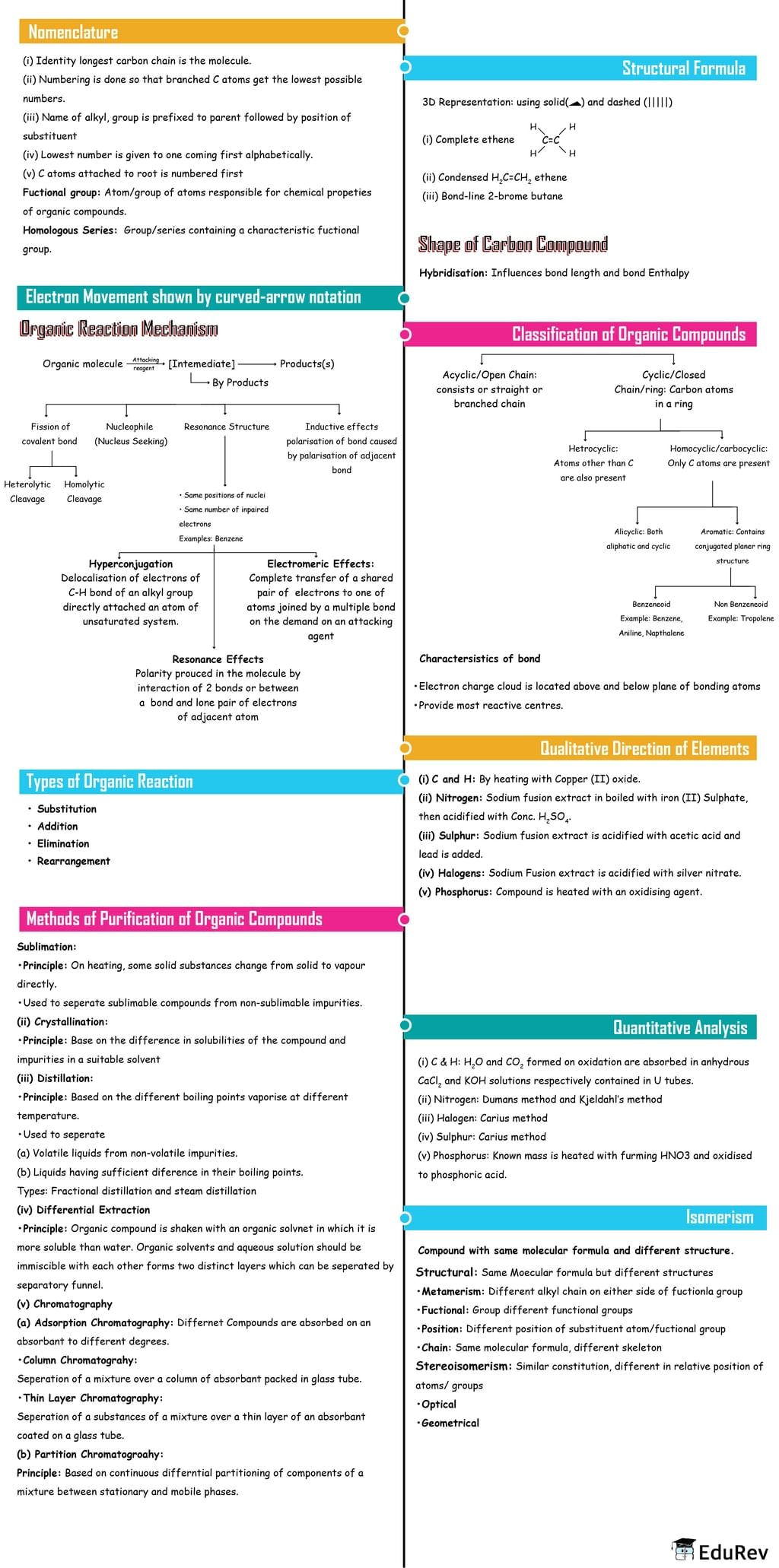NEET Exam > NEET Notes > Chemistry Class 11 > Mind Map: Organic Chemistry: Some basic Principles and Techniques
Mind Map: Organic Chemistry: Some basic Principles and Techniques | Chemistry Class 11 - NEET PDF Download

The document Mind Map: Organic Chemistry: Some basic Principles and Techniques | Chemistry Class 11 - NEET is a part of the NEET Course Chemistry Class 11.
All you need of NEET at this link: NEET
|
114 videos|263 docs|74 tests
|
FAQs on Mind Map: Organic Chemistry: Some basic Principles and Techniques - Chemistry Class 11 - NEET
| 1. What are some basic principles of organic chemistry? |  |
Ans. Some basic principles of organic chemistry include the concept of valence, the octet rule, the importance of carbon as the central element in organic compounds, and the understanding of functional groups and their reactivity.
| 2. How can I determine the structure of an organic compound? |  |
Ans. The structure of an organic compound can be determined using various techniques such as spectroscopy (including infrared spectroscopy, nuclear magnetic resonance spectroscopy, and mass spectrometry), elemental analysis, and chemical reactions to identify functional groups.
| 3. What are some commonly used techniques in organic chemistry? |  |
Ans. Some commonly used techniques in organic chemistry include distillation, extraction, chromatography (such as thin-layer chromatography and column chromatography), and various types of spectroscopy (such as UV-Vis spectroscopy and infrared spectroscopy).
| 4. How can I purify organic compounds? |  |
Ans. Organic compounds can be purified using techniques such as recrystallization, distillation, and chromatography. Recrystallization involves dissolving the compound in a suitable solvent and allowing it to slowly crystallize, resulting in the separation of impurities. Distillation involves heating the mixture to separate the components based on their boiling points. Chromatography involves separating the compounds based on their affinity to a stationary phase and a mobile phase.
| 5. What are the major differences between organic and inorganic chemistry? |  |
Ans. Organic chemistry primarily deals with the study of compounds containing carbon and hydrogen, including their structure, properties, composition, reactions, and synthesis. Inorganic chemistry, on the other hand, focuses on the study of compounds that do not contain carbon-hydrogen bonds, such as minerals, metals, and nonmetals. Inorganic compounds often have ionic or covalent bonding, whereas organic compounds primarily have covalent bonding.
Related Searches






















